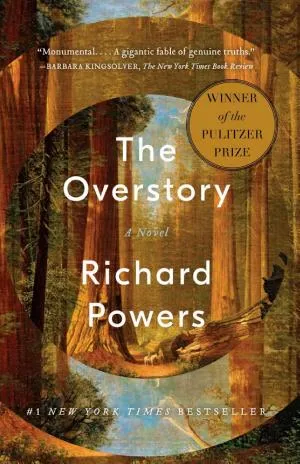
The sole remaining chestnut goes on flowering. But its blooms have no more blooms to answer them. No mates exist for countless miles around, and a chestnut, though both male and female, will not serve itself. Yet still this tree has a secret tucked into the thin, living cylinder beneath its bark. Its cells obey an ancient formula: Keep still. Wait. Something in the lone survivor knows that even the ironclad law of Now can be outlasted. There’s work to do. Star-work, but earthbound all the same. Or as the nurse to the Union dead writes: Stand cool and composed before a million universes. As cool and composed as wood.
In summer, water rises through the xylem and disperses out of the million tiny mouths on the undersides of leaves, a hundred gallons a day evaporating from the tree’s airy crown into the humid Iowa air. In fall, the yellowing leaves fill Frank Jr. with nostalgia. In winter, bare branches click and hum above the drifts, their blunt resting buds almost sinister with waiting. But for a moment each spring, the pale green catkins and cream-colored flowers put thoughts into Frank Jr.’s head, thoughts he doesn’t know how to have.
He lay on his back on the Fourth of July, looking up into the spreading tree while everyone else pitched horseshoes. There was a geometry to this constant splitting, a balance to the various thicknesses and lengths that lay beyond his powers as an artist to reveal. Sketching, he wondered what his brain would have to be like to distinguish each of the hundreds of lancet leaves on a given branch and recognize them as easily as he did the faces of his cousins.
Human history was the story of increasingly disoriented hunger.
The [ant] colony possesses something; Adam doesn’t know what to call it. Purpose. Will. A kind of awareness—something so different from human intelligence that intelligence thinks it’s nothing.
A seed that lands upside down in the ground will wheel—root and stem—in great U-turns until it rights itself. But a human child can know it’s pointed wrong and still consider the direction well worth a try.
Why? She says no reason. A lark. A whim. Freedom. But there is, of course, no freedom. There are only ancient prophecies that scry the seeds of time and say which will grow and which will not.
And still a part of him wants to know if his few and private thoughts might in fact be ratified by someone, somewhere. The confirmation of others: a sickness the entire race will die of.
Watching the man, hard-of-hearing, hard-of-speech Patty learns that real joy consists of knowing that human wisdom counts less than the shimmer of beeches in a breeze. As certain as weather coming from the west, the things people know for sure will change. There is no knowing for a fact. The only dependable things are humility and looking.
Dr. Westerford closes her eyes. She has seen dieback across the West. Aspens are withering. Grazed on by everything with hooves, cut off from rejuvenating fire, whole groves are vanishing. Now she sees a forest, spreading across these mountains since before humans left Africa, giving way to second homes. She sees it in one great glimpse of flashing gold: trees and humans, at war over the land and water and atmosphere. And she can hear, louder than the quaking leaves, which side will lose by winning.
In place of children, then, books. In their reading tastes, each of them stays true to the dreams of youth. Ray likes to glimpse the grand project of civilization ascending to its still-obscure destiny. He wants only to read on, late into the night, about the rising quality of life, the steady freeing of humanity by invention, the breakout of know-how that will finally save the race. Dorothy needs wilder reclamations, stories free of ideas and steeped in local selves. Her salvation is close, hot, and private. It depends on a person’s ability to say nevertheless, to do one small thing that seems beyond them, and, for a moment, break the grip of time.
“It could be the eternal project of mankind, to learn what forests have figured out.”
More people are born in twenty years than were alive in the year of Douglas’s birth.
Nick hides and works. What’s twenty years, to work that’s slower than trees?
We are not, one of Adam’s papers proves, wired to see slow, background change, when something bright and colorful is waving in our faces.
You can watch the hour hand, Mimi finds, hold your eyes on it all around the circle of the clock, and never once see it move.
He gets the crate of paperbacks up on their steel shelves and takes stock. The aisle rises on girders into an endless chasm of books. Dozens of aisles in this Fulfillment Center alone. And every month, new Fulfillment Centers across several continents. His employers won’t stop until everyone is fulfilled. Nick squanders a full five precious seconds of his time-motion gazing down the gorge of books. The sight fills him with a horror inseparable from hope. Somewhere in all these boundless, compounding, swelling canyons of imprinted paper, encoded in the millions of tons of loblolly pine fiber, there must be a few words of truth, a page, a paragraph that could break the spell of fulfillment and bring back danger, need, and death.
And when the girl turns around and lifts her face, in this other life unfolding invisibly alongside the one that happened, Dorothy sees the face of her daughter, ready to take on all of life.